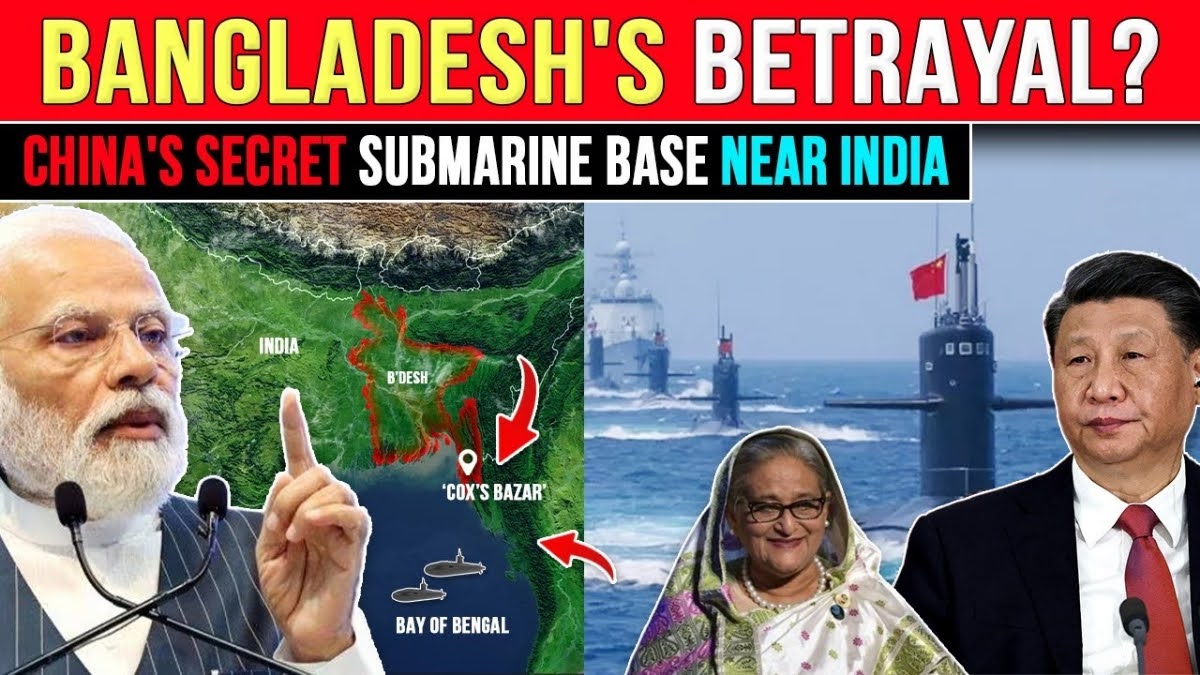
In recent years, Bangladesh’s betrayal have sparked significant debate, leading many to question whether the nation’s actions constitute betrayal towards its allies. This blog explores the historical context, key incidents, and their implications while addressing the underlying reasons for what some perceive as a breach of trust.
Historical Bonds and Strategic Alliances
Bangladesh has historically shared deep-rooted ties with several neighboring countries, particularly India. The 1971 Liberation War laid the foundation for this bond, with India playing a pivotal role in Bangladesh’s independence from Pakistan. Over the decades, this partnership expanded into areas such as trade, defense, and cultural exchange.
Despite these robust ties, recent events suggest a shift in Bangladesh’s foreign policy. Analysts argue that this shift reflects a pragmatic approach to national interest but, to some, it feels like a betrayal of longstanding alliances.
Key Incidents Fueling Allegations of Bangadesh’s Betrayal
Strengthening Ties with China
One of the most discussed aspects of Bangladesh’s foreign policy has been its growing proximity to China. China’s Belt and Road Initiative (BRI) has gained significant traction in Bangladesh, with investments in infrastructure projects such as the Padma Bridge and the Karnaphuli Tunnel. While these projects promise economic benefits, they have raised eyebrows in India and other countries wary of China’s strategic ambitions in South Asia.
Critics view this partnership as a potential threat to India’s security and influence in the region. Bangladesh’s decision to balance its ties with both India and China has led to accusations of prioritizing economic gains over historical loyalties.
Water Sharing Disputes
Another contentious issue is the water-sharing agreements between India and Bangladesh. The Teesta River dispute remains unresolved despite multiple rounds of negotiations. Bangladesh’s persistent demand for a fair share of water has created tensions, with some accusing it of using the issue as leverage in broader diplomatic engagements.
Simultaneously, Bangladesh has shown reluctance to support India’s water-sharing agreements with other neighboring countries, further straining relations.
Diplomatic Neutrality on Regional Conflicts of Bangladesh’s Betrayal
Bangladesh’s neutral stance on several regional conflicts has also been interpreted as a betrayal by some allies. For instance, during India’s border standoff with China, Bangladesh refrained from openly supporting India. This neutrality, although justifiable from a sovereignty perspective, has fueled perceptions of Bangladesh distancing itself from its traditional ally.
Domestic Considerations Driving the Shift of Bangladesh’s Betrayal
Bangladesh’s actions are not without justification. The country’s leadership has emphasized that its foreign policy is guided by national interest rather than external pressures. Here are some key factors influencing its decisions:
Economic Development
As a rapidly developing nation, Bangladesh prioritizes economic growth and infrastructure development. Partnerships with countries like China offer substantial investments and loans critical for its ambitious projects. This pragmatic approach aims to ensure sustained economic progress while reducing dependency on any single ally.
Political Stability
Domestic political considerations also play a role. The ruling government’s focus on maintaining stability often necessitates balancing relations with major powers, including India, China, and the United States. This balancing act sometimes results in decisions that appear contradictory to traditional alliances.
Sovereignty and Non-Alignment
Bangladesh’s emphasis on sovereignty and a non-aligned foreign policy reflects its aspiration to be seen as an independent and self-reliant nation. By diversifying its partnerships, Bangladesh aims to strengthen its global standing without being tied to the interests of any single nation.
Repercussions of Perceived of Bangladesh’s Betrayal
Regional Tensions
Bangladesh’s Betrayal have inevitably impacted regional dynamics. Strained ties with India could lead to reduced cooperation in areas such as trade, security, and counterterrorism. The trust deficit might also affect collaborative efforts to address common challenges like climate change and cross-border issues.
Impact on Global Alliances of Bangladesh’s Betrayal
Beyond South Asia, Bangladesh’s Betrayal shifting alliances could influence its relationships with global powers. Countries closely monitoring South Asia’s geopolitical landscape may reassess their approach to Bangladesh, affecting its access to international support and resources.
Public Sentiment and Media Narratives
In both Bangladesh and its neighboring countries, media narratives often amplify perceptions of betrayal. Public sentiment, fueled by these narratives, can further complicate diplomatic efforts to resolve tensions. It is essential for governments to communicate transparently to mitigate misunderstandings.
The Path Forward of Bangladesh’s Betrayal
While allegations of betrayal persist, it is crucial to recognize that international relations are inherently complex. Bangladesh’s actions, when viewed through the lens of national interest, align with its developmental goals and sovereign aspirations. However, to rebuild trust and ensure regional stability, concerted efforts are needed from all parties involved.
Strengthening Bilateral Dialogues
India and Bangladesh must prioritize open and constructive dialogues to address contentious issues. Resolving disputes like the Teesta water-sharing agreement can serve as a foundation for restoring trust.
Enhancing Multilateral Cooperation
Regional organizations like SAARC and BIMSTEC offer platforms for fostering collaboration. Bangladesh can leverage these platforms to promote mutual understanding and collective progress.
Balancing Relationships with Major Powers
Bangladesh’s leadership must navigate its relationships with major powers carefully, ensuring that its actions do not alienate traditional allies. Transparency and consistency in foreign policy can help mitigate perceptions of betrayal.
Conclusion of Bangladesh’s Betrayal
The narrative of Bangladesh’s betrayal is rooted in the complexities of modern geopolitics. While its actions may appear contradictory to some, they reflect the country’s pragmatic approach to safeguarding its national interests. By addressing misunderstandings and fostering collaboration, Bangladesh and its allies can move towards a future defined by mutual respect and shared prosperity. The path forward demands patience, diplomacy, and a commitment to regional harmony.








